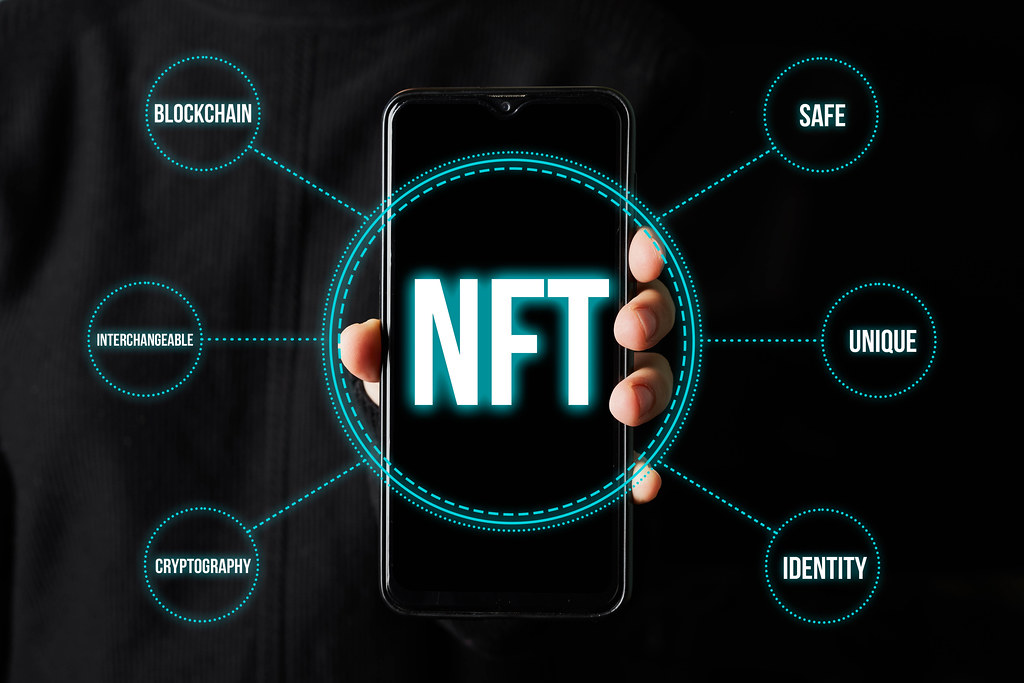Given the rise of NFTs, as well as the creators of them in recent months, there are major tax issues with respect to taxation, not only of the purchase and sale of NFTs in a private capacity, but the taxation in VAT for those creators of NFTs who exercise this activity as a professional or business. All this linked to the total absence of specific tax regulation on it and the lack of information provided by the platform to the creators of NFTs on who are the ones who acquire their NFTs, makes this one of the great drawers of tailor and that from here we call attention to the relevant Tax Administrations to regulate or at least provide light via binding consultations, as well as these digital platforms.
There is currently no specific regulation on the purchase and sale of NFT, but this does not mean that these transactions are exempt from taxation. NFTs are unique digital assets, which like another cryptoactive, have to be taxed, since they represent a taxable income in the IRPF and a transfer subject to indirect taxation in the VAT or in the TPO.
Taxation of the NFTs creators
The VAT of the creators of NFT and the obligations to issue invoices
The creator of NFTs is a taxable person for VAT, regardless of whether that activity is carried out on an occasional basis.
In terms of VAT, the first question that a creator of NFTs can ask is, if by the mere fact of designing and selling NFTs through digital platforms such as OPEN SEA or BEST FTSO they are taxable persons of VAT even in those cases in which this activity is developed occasionally and therefore have to submit quarterly VAT returns through form 303. The answer is simple, yes.
The second question is how an NFT creator, who sells his works through digital platforms, should be taxed in these quarterly VAT settlements (model 303) for the sales made. Here the answer is not so simple, since we are facing a large legal loophole in terms of taxation.
According to the regulatory framework that regulates VAT, such sales can be included within the concept of services provided electronically, since they are non-customizable drawings or images that are sent and received through processing equipment. This results in these services being taxed at 21%, provided that, in accordance with the specific location rules for these services of the VAT Law, they are understood to be provided in the Territory of Application of the Tax (i.e. Spain excluding the Canary Islands, Ceuta and Melilla). These localization rules are based on the personal and professional circumstances of the buyer, such as where he is established or if the buyer does it in his personal capacity or as an entrepreneur or professional.
It is important that the creator of NFTs knows in which country their buyers are established, as well as if they buy as final consumers to determine the taxation of such sales in VAT.
And this is where the big questions arise since the platforms through which these NFTs are sold are decentralized and the seller does not usually have much information about his buyers. Necessary information to know where your buyer is established, since as we have mentioned above, this feature will be decisive to check if for this operation the buyer must issue or pay VAT through the quarterly declaration form 303.
The creators of NFTs can deduct VAT from the expenses related to their activity, however, they must have justified these expenses by invoice.
All this linked to the fact that the platforms where these transactions are marketed, do not facilitate the way in which an invoice can be issued to the client who buys the NFTs, does not leave things easy for the creators of NFTs when it comes to complying with their tax obligations.
The same happens with the fees,which are charged by these digital platforms to the creators of NFTs for the sales they make on their portals, which, since they do not issue an invoice to the creator of NFTs, he does not have the way to justify said expense paid to the digital platform, which makes it difficult for him to deduct said expense in his VAT return, since for the latter to be possible they must have in their possession said expenditure invoice.
Additionally, according to the literalness of the standard, the creator of NFTs must issue an invoice to its buyers passing on the corresponding VAT of 21%. However, as we have mentioned above, the digital platforms through which these transactions are carried out do not allow the issuance of these invoices, which causes the creator of the NFT himself to have to pay said VAT from his own pocket, as he has not been able to pass it on to the client.
On the other hand, it is important to point out a great problem that is causing the modus operandi of such transactions in relation to billing obligations. This is because according to the VAT Law, entrepreneurs or professionals (in this case the creators of NFTs) are obliged to issue an invoice for the operations carried out, including those that are considered not subject or exempt from VAT and this obligation is impossible to comply with if said platforms do not facilitate the way in which they can be done, as it is difficult to identify NFT buyers.
That is why it is important that the creators issue their invoices with the content established in articles 6 and 7 of the Billing Regulations, since otherwise they are exposing themselves to a possible penalty of 2% of the amount of all the operations for which no invoice has been issued or of 300 euros for each invoice not issued and / or kept when it was not possible to know the amount of the operations.
The personal Income Tax of the creators of NFT
Another of the great questions that a creator of NFT can ask himself is that related to the taxation of his activity, as creator of NFT, in his Personal Income Tax.
In this sense, full income from economic activities will be considered those that, coming from personal work and capital together, or from only one of these factors, suppose on the part of the taxable person, the organization on his own account of means of production and human resources or of one of both, with the purpose of intervening in the production or distribution of goods or services.
All this means that, when carrying out this activity on their own account, being indifferent if it is occasional or habitual, said income must be taxed within the general taxable base of the Personal Income Tax, under the heading of income from economic activities, whose rate can amount to 47% for the highest incomes.
On the other hand, the creator of NFTs may deduct the expenses incurred and necessary to his professional activity, as long as these are duly justified.
Here arises the first problem with a typical expense that many creators of NFTs have, which are the fees charged by the digital platform for the sale of their NFTs, since, as we have mentioned, these platforms do not usually issue such invoices to the creators of NFTs.
On the other hand, we must emphasize that the swaps of NFTs and cryptocurrencies made outside the professional sphere of the creator of NFTs will be taxed as capital gains (if any) that is within the Taxable Base of Personal Income Tax Savings and whose percentage can amount to 26% for the highest incomes, as we collect below.
These incomes must be declared in form 100 of the Personal Income Tax, which has an annual character.
Taxation of NFT sales by individuals outside the professional/business sphere
VAT vs Transfer Tax on NFT private transfers
As we have mentioned before, to be a taxable person of VAT, you must be an entrepreneur or professional and also, that in said transfer you act as such. This is not true when individuals who do not create NFTs or who are not professionally engaged in it make sales of acquired NFT to third parties and consequently such transmissions are not subject to VAT.
On the other hand, such transmissions may be subject to the Spanish Transfer Tax. This is a tax transferred by the Spanish State to the Autonomous Communities. On the other hand, with respect to the type of tax that must be applied, the law distinguishes: movable property, immovable property and real rights. To do this, each type of NFT must be analyzed to determine which category they belong to.
Personal income tax on NFT sales by individuals
The obtaining of income derived from the transmissions of NFT must be taxed in the Personal Income Tax of the transferor. In this sense, these incomes must be integrated into the taxable base of the transferor’s savings, within the subsection of income from capital gains and losses, as not to derive said income from a professional or business activity as if it happens with the creators of NFT. The same qualification deserves the NFT swaps that could be made between non-professionals.
In this sense, the average applicable rate will depend on the profit generated, this being between 19% and 26%. The scale is as follows:
- 19%If the taxable base is between 0 and 6,000 euros
- 21% if the taxable base is between 6,000 euros and 50,000 euros
- 23% if the tax base is between 50,000 euros and 200,000 euros
- 26% if the tax base is greater than 200,000 euros
Tax Advice
It is necessary for any user who intends to enter the world of Crypto Art to know all the fiscal aspects that revolve around it, in order to avoid possible sanctions that may arise from the purchase and sale of NFT.
In Navas Cusi Abogados we are aware of the impact of NFT in our society and the value they generate, and we offer through our team specialized in new technologies tax advice on the purchase and sale of NFT in accordance with current legislation.



